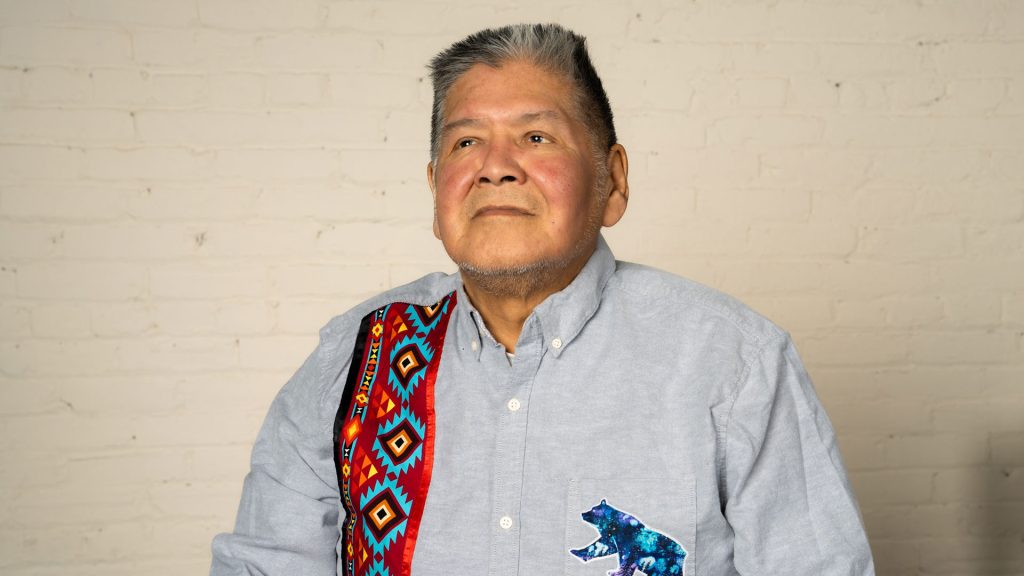
Wilfred Buck has written two books and is the subject of a new documentary. Photo: Submited
Manitoba’s foremost expert on Indigenous astronomy will be sharing his traditional knowledge with a crowd in New York state Monday.
Wilfred Buck, of Opaskwayak Cree Nation in northern Manitoba, will be viewing and discussing the eclipse at the University of Rochester.
“It’s two full days,” Buck told APTN News. “One day I’ll be speaking with the university faculty, and the next day the community itself and invited guests.”
Indigenous knowledge
Interest in Indigenous knowledge of the skies has never been higher, added Buck.
Parts of New York state, including Niagara Falls and Buffalo, are on the path of totality Monday afternoon.
“I started researching about the Cree people in 2006; about the stars and constellations and all the planets up there – astronomy, in general. I found all kinds of information.”
Buck interviewed knowledge keepers, participated in traditional ceremonies and practised fasting, vision quests and interpreted dreams.
“People understood about the eclipse; it’s not like you see in Hollywood movies where non-European cultures view the eclipse and they get all googly-eyed and they get scared,” he said.
“For a lot of our people, it’s a time of renewal, a time of rebirth, a time of letting go of all your old habits and grudges.”
Impacted by colonialism
But Buck said their astronomical observations were impacted by the effects of colonialism.
“The majority of our people don’t know how their culture looks at the stars because they grew up with a colonial perspective,” he said. “A lot of that knowledge wasn’t passed on from generation to generation.”
It happened in Buck’s own family.
His flourishing community was displaced by construction of two hydro dams and his family fell apart.
“They flooded all the self-sufficient families that lived on that river … thousands of families living on that river system, living off the land. And the majority of them had to move to urban areas.”
The ensuing unemployment led his parents to alcohol addiction and their young children were apprehended by child welfare workers.
“Me and my (seven) siblings got adopted and separated to the four directions.”
He writes about it in his second book: I Have Lived Four Lives. An upcoming documentary for the National Film Board, entitled Wilfred Buck, is also semi-autobiographical, he said.
“Due to the trauma that happened to our people, a lot of us didn’t have the opportunity to listen to those stories over and over again, because a lot of us were sent to residential schools, adopted outside the culture (60s Scoop) and got involved with drugs and alcohol. There’s a breakdown there.”

Buck, a school teacher for 25 years, did his own research to learn how the childhood stories he missed connected to the skies.
He then became a science consultant for the Manitoba First Nations Education Resource Centre.
“I was in that position for about 15 years, doing hands-on physics, hands-on science … with the mandate to get our First Nations students interested in science and math,” he explained.
“One of the Elders said, ‘One of the ways you could get kids interested in science is to have them go outside at night and look at the sky.’ And I thought that was so amazing.”
Buck purchased a pop-up planetarium.
“I took that around to the schools and started telling students about their astronomy,” he said.
At 69, he’s now known as “the star guy” and busier than ever, living a life that seems to have come full circle.
“We’re told our beliefs are spiritual, but, in actual fact, they’re referring to energy. And, of course, that’s what the stars are, and that’s what we are,” Buck says.
“Of course, science also says everything is energy. We’re on the same wavelengths.”










